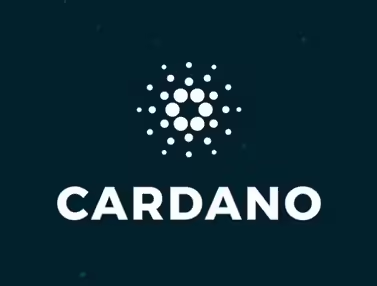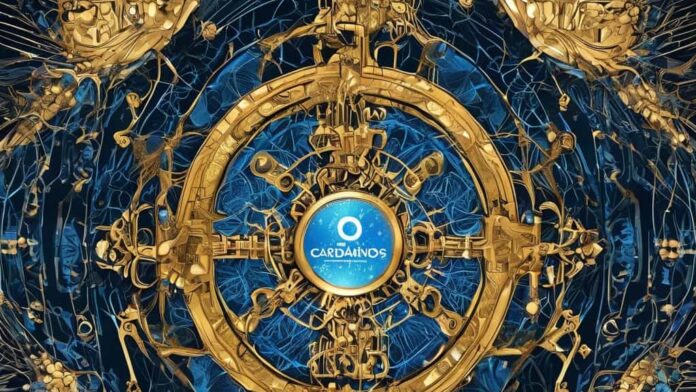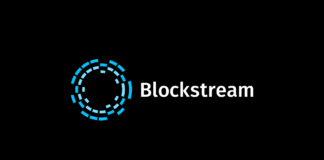The Cardano community is abuzz with anticipation as the blockchain network prepares to undergo a monumental upgrade – the Cardano Chang hard fork. Positioned as a pivotal moment in Cardano’s journey towards decentralized governance, this milestone event marks the inception of minimum-viable community governance in the Cardano ecosystem.
Cardano’s founder, Charles Hoskinson, has consistently emphasized the need for significant changes to propel the blockchain into the league of networks serving billions of users. The Chang hard fork milestone is set to deliver on this vision, introducing a quantum leap in Cardano’s capabilities, efficiency, and utility.
This comprehensive article delves into the specifics of the Chang blockchain milestone, exploring its game-changing implications, the key milestones it will usher in, and how it positions Cardano at the forefront of the blockchain revolution.
Cardano’s Governance Landscape: From Genesis to Voltaire

Cardano’s current governance model is determined explicitly by seven Genesis keys, with specific governance powers split among the founding entities – IOG, Cardano Foundation, and EMURGO. This somewhat centralized governance approach has been the subject of ongoing discussions within the community, as it grants significant decision-making authority to a select few entities.
However, the impending Chang hard fork marks the beginning of a new era for Cardano – the “Voltaire era.” This phase, as envisioned by Hoskinson, will witness a transformative shift towards further decentralization and improved on-chain governance. The term “Voltaire” was chosen to denote this era, alluding to the renowned Enlightenment philosopher’s advocacy for individual liberty and democratic principles.
Unveiling CIP-1694: Cardano’s New Governance Model
At the heart of the Chang hard fork lies Cardano Improvement Proposal (CIP) 1694, a landmark proposal that introduces a novel on-chain governance model for the Cardano network. CIP-1694 has been the subject of extensive community discussion and feedback, with over 700 comments on its GitHub pull request and numerous online and in-person workshops.
The CIP-1694 proposal outlines a tricameral governance model, comprising Stake Pool Operators (SPOs), Delegated Representatives (DReps), and a Constitutional Committee (CC). These three groups will collaborate on governance decisions, determining parameter adjustments, treasury withdrawals, and other crucial actions that shape the future of Cardano.
Stake Pool Operators (SPOs)
Stake Pool Operators (SPOs) play a vital role in Cardano’s proof-of-stake consensus mechanism, responsible for producing new blocks and maintaining the network’s integrity. Under the new governance model, SPOs will have a direct say in governance decisions, participating in on-chain polls to voice their opinions and preferences.
Delegated Representatives (DReps)
The introduction of Delegated Representatives (DReps) is a significant innovation in Cardano’s governance structure. Any ADA holder will be able to register as a DRep, empowering them to represent themselves and their interests in the decentralized decision-making process. DReps will have the authority to vote on governance actions, ensuring that the average ADA holder has a direct voice in Cardano’s future.
Constitutional Committee (CC)
The Constitutional Committee (CC) is a crucial component of the new governance model, tasked with reviewing the constitutionality of governance actions. Comprising members who adhere to a “one person, one vote” principle, the CC will serve as a safeguard, ensuring that all decisions align with the foundational principles and rules outlined in the Cardano Constitution.
The Cardano Constitution: Defining Governance Principles
The Cardano Constitution is a yet-to-be-defined document that will provide the foundational principles and rules for Cardano’s governance. This document, to be drafted by the Constitutional Committee, will serve as the cornerstone of the decentralized governance mechanisms, guiding the future direction of the Cardano blockchain.
The Constitution will be a crucial element in promoting community participation, fostering global representation, and instilling ethical values and principle-based governance within the Cardano ecosystem. The process of drafting and ratifying the Constitution will be a collaborative effort, ensuring that the Cardano community is actively involved in shaping this pivotal document.
Unveiling the Chang Hard Fork: A Phased Approach
The Cardano Chang hard fork is not a single event, but rather a phased approach to implementing Cardano’s new governance model. The hard fork will introduce two significant upgrades: Chang Upgrade Number One and Chang Upgrade Number Two.
Chang Upgrade Number One
Chang Upgrade Number One will deploy the initial governance features on the Cardano network, initiating the technical bootstrapping phase outlined in CIP-1694. This phase will set the stage for decentralized voting, governance actions, and other foundational governance mechanisms.
Chang Upgrade Number Two
Chang Upgrade Number Two takes the governance model beyond the technical bootstrapping phase, unlocking the final features of on-chain governance. This includes the introduction of delegated representative participation and treasury withdrawals, empowering the community to propose and fund new projects, ensuring the sustainability and evolution of the Cardano ecosystem.
The Road to Voltaire: Key Milestones and Timeline
The journey towards the Age of Voltaire has been a meticulously planned and collaborative effort, with the Cardano community actively engaged throughout the process. The timeline of key milestones leading up to the Chang hard fork and the subsequent governance era provides a comprehensive overview of the progress made.
October 2022: Cardano Professional Society Proposal
In October 2022, Michael Liesenfelt proposed the idea of a Cardano Professional Society, laying the groundwork for a community-driven platform to discuss and shape Cardano’s governance.
November 2022: Introduction of CIP-1694
November 18, 2022, marked a significant milestone with the introduction of CIP-1694 to the Cardano community. This proposal, outlining the new on-chain governance model, sparked extensive discussions and workshops, laying the foundation for the Age of Voltaire.
February 2023: Voltaire Educational Content and Workshops
In February 2023, the community engaged in a series of educational content pieces and workshops, delving deeper into the intricacies of CIP-1694 and the proposed governance actions and distinct groups responsible for ratifying governance.
March 2023: SPO On-chain Poll and Governance Updates
March 2023 saw the announcement of the first-ever SPO on-chain poll, a crucial step in gathering community feedback and input. Additionally, the community received regular updates on the progress of CIP-1694 and other governance-related initiatives.
April-June 2023: Workshops, Modifications, and Proposal Merger
The following months witnessed a flurry of activities, including community workshops, modifications to CIP-1694, and the eventual merger of the proposal into the main branch of the CIP repository, marking its transition to the “Proposed” status.
July 2023: Intersect MBO Launch and Ongoing Developments
In July 2023, the Intersect Member-Based Organization (MBO) was launched, providing a platform for coordinating the future development and maintenance of the Cardano ecosystem. Simultaneously, the community continued to explore alternative voting mechanisms and governance-related improvements.
The Future of Cardano Governance: Challenges and Opportunities
As Cardano embarks on the Age of Voltaire, the community faces both challenges and opportunities in shaping the network’s decentralized governance model.
Addressing Potential Governance Capture
One of the key concerns surrounding the CIP-1694 proposal is the risk of governance system capture, where large ADA holders could wield undue influence and centralize decision-making. Mitigating this challenge will be crucial in ensuring the integrity and fairness of the governance process.
Achieving a Truly Decentralized Identity Solution
The absence of a decentralized identity solution for ADA holders poses a significant hurdle in implementing a true “one-person-one-vote” system. Developing secure and scalable identity management mechanisms will be a critical focus area for the Cardano team.
Incentivizing Delegated Representatives (DReps)
Discussions are ongoing regarding the incentivization of DReps, as CIP-1694 stipulates that staking rewards will only be accessible to those who register as DReps or delegate their stake. Striking the right balance between encouraging participation and avoiding potential conflicts of interest will be a key challenge.
Fostering Transparent and Inclusive Governance
Ensuring clear and inclusive communication throughout the governance process will be paramount in empowering all stakeholders to actively participate. The Cardano community must prioritize the use of simple, understandable language to ensure widespread understanding and engagement.
Conclusion: Cardano’s Transformative Journey Continues
The Chang hard fork and the subsequent Age of Voltaire mark a transformative chapter in Cardano’s history. By transitioning to a decentralized governance model, the network is poised to unlock unprecedented levels of community participation, transparency, and sustainability.
As Cardano embarks on this journey, the community must remain vigilant, addressing the challenges that arise and seizing the opportunities presented by this paradigm shift. The successful implementation of the new governance infrastructure will not only solidify Cardano’s position as a leader in the blockchain space but also pave the way for a more equitable and decentralized future for the entire cryptocurrency ecosystem.
FAQs
What is the significance of the Cardano Chang hard fork?
The Chang hard fork marks the inception of minimum-viable community governance in the Cardano ecosystem, propelling the blockchain into the league of networks serving billions of users.
What is CIP-1694 and how does it impact Cardano’s governance?
CIP-1694 introduces a tricameral governance model comprising Stake Pool Operators, Delegated Representatives, and a Constitutional Committee, empowering them to collaborate on governance decisions.
What are the key milestones of the Chang hard fork and the Age of Voltaire?
Key milestones include the introduction of CIP-1694, Voltaire educational content, SPO on-chain poll, proposal merger, and the launch of the Intersect Member-Based Organization (MBO).
What are the challenges and opportunities in Cardano’s decentralized governance model?
Challenges include potential governance capture, decentralized identity solution, incentivizing DReps, and fostering transparent and inclusive governance. Opportunities include unprecedented community participation and sustainability.
Disclaimer: The information provided in this article is for informational purposes only and does not constitute financial advice. Investing in cryptocurrencies involves risks, and readers should conduct their own research and consult with financial advisors before making investment decisions. Hash Herald is not responsible for any profits or losses in the process.













